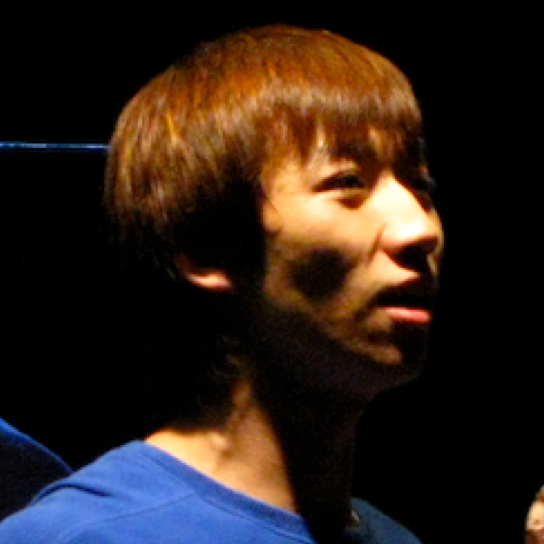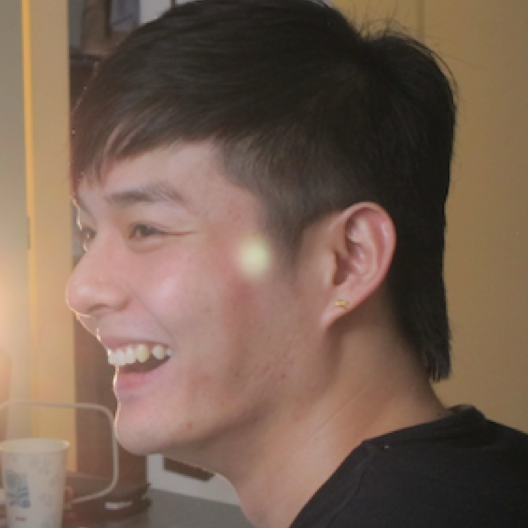The Film
The Story
The Road to Fame tells a unique story of coming-of-age with Chinese characteristics. The film chronicles the staging of the American musical Fame—China’s first official collaboration with Broadway—by the senior class at China's top drama academy as their graduation showcase. During the eight-month process, five students compete for roles, struggle with pressure from family and authority, and prepare to graduate into a cutthroat and corrupt show business. Part of China’s Single-Child generation, they were spoiled growing up but are now obliged to carry on the failed dreams of their parents. They must confront complex social realities and their own anxieties, and, in the process of staging Fame, negotiate their own definitions of and paths to success in today’s China.
Fame and China
Fame started as the critically acclaimed 1980 movie and later moved to commercial success on TV and the theater stage. The film focuses on the lives of five teenagers at the New York High School of Performing Arts as they strive for success and fame. It has become a pop culture icon in the West because it appeals to the classic American myth of individualism, of the “self-made-person,” and of rising above challenges.
In contrast, for thousands of years, Chinese believed “fat pigs get butchered, extraordinary men get knocked down.” The Chinese society—conformist, hierarchical and authoritative—ostracized those seeking personal recognition.
But times are changing. As China’s economy rapidly expands, its entertainment industry has grown explosively. Youths today, ever more enamored by the glitz of stardom, rush into show business en mass.
The Chinese government has also begun investing heavily in creative industries. The goal is to enhance China’s “soft power” to match its economic clout. Developing a local musical industry and local talents becomes part of the endeavor. With full government funding, the Central Academy of Drama seeks Broadway’s help to stage Fame - the Musical, the first Western musical translated into Chinese and performed by Chinese actors. The Road to Fame explores how the cultural idea of fame transforms when Fame is produced in China at China’s own Fame school, with a Chinese cast, and directed by both Chinese and Americans.
The School
At the founding of the People’s Republic of China in 1949, the Chinese government merged three established performing art schools into the Central Academy of Drama. Chairman Mao Zedong understood well the propaganda power of arts and culture, so he took a personal interest in setting up the Academy in Beijing and inscribed its name himself.
Throughout its history, the Academy has been considered China’s premier acting college. Most of China’s best-known international stars—including Gong Li, Zhang Ziyi and Jiang Wen—graduated from the Academy.
Despite its reputation as China’s Fame school, today a degree from the Academy no longer guarantees a job, let alone fame. In the 1990s, Chinese universities phased out the planned-economy policy of job assignment upon graduation. The pool of acting talent has also grown much faster than what the industry can absorb, partly due to the government’s drive to increase the number of college graduates across all disciplines, and partly because too many young people are chasing the glamour of show business. Industry anecdote pegs the number of actors in Beijing at between 300,000-400,000.
The Kids
In 1979, China began enforcing the One-Child policy nationwide. Under this policy, urban couples are only allowed to have one child, whereas rural couples can have a second child if the first-born is a girl. The policy has helped check China’s population growth. But it has also brought wide-ranging social impact to Chinese society.
Between 1980 and 1990, approximately 240 million babies were born. Researchers have observed a lack of competitiveness in this generation, since they do not need to compete with siblings to win parents’ attention. Four grandparents and two parents usually spoil their only child. Chinese media frequently refer to this generation as “little emperors” who are inept at dealing with pressure or setbacks.
They are also the first generation to have grown up in China in uninterrupted economic prosperity since the 1842 Opium War. While their parents suffered through famine, political instability and lack of proper education under Mao Zedong, these single children embrace pop culture and Western-style consumerism. They are savvy with the Internet and digital media. And they have high expectations of material wealth and individual fulfillment for the future.
But the future that they are graduating into scares them. China’s show business is ruthlessly competitive, mercenary and corrupt. In this industry as elsewhere in China, money and connection advance one’s career. Not talent.
Meanwhile, they are under tremendous pressure from their parents to succeed. The parents have invested much of their financial resources and their own failed dreams in their only children. Filial piety and family honor constrain the kids’ capability to dream for themselves.
It is in this environment that our five graduating students grow anxious about their future and distrustful of their teachers, the school and the society at large. They come from diverse family background, have contrasting personalities, and harbor different career goals. They struggle with the various cultural values shaping China today—Confucianism, individualism and materialism—and seek guidance from the American coaches to find their own voice. They strive to control their own fate while doing their best to make their parents proud. In the pursuit of Fame on and off stage, they learn to both compromise and persevere in their path to an uncertain future in China.
The Production
Produced by TRIPOD MEDIA LLC
With Funding Provided by The FORD FOUNDATION JustFilms
In Co-Production with
BBC (UK), VPRO (Netherlands), CNEX (Taiwan) & DR (Denmark)
With Additional Support from
INDEPENDENT FILMMAKER PROJECT (IFP)
IDFA FORUM
DAVID DE SILVA AND THE FATHER FAME FOUNDATION
A presentation of the CENTER FOR ASIAN AMERICAN MEDIA (CAAM) with funding provided by the CORPORATION FOR PUBLIC BROADCASTING.
The Chinese production of “Fame-the Musical” was produced by
THE CENTRAL ACADEMY OF China
In association with
NEDERLANDER WORLDWIDE ENTERTAINMENT
PHOENIX ENTERTAINMENT
Through special arrangement with
MUSIC THEATRE INTERNATIONAL (NY).





